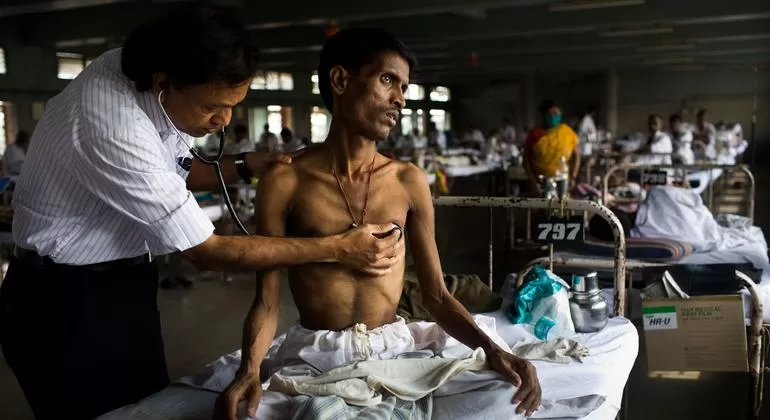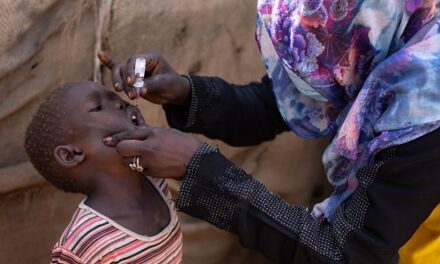A recent study has highlighted an alarming disparity in tuberculosis (TB) prevalence between healthcare workers and the general population in India, revealing the critical occupational risks faced by those in the health sector. The comprehensive analysis, titled Prevalence of Tuberculosis Among Healthcare Workers in India: A Systematic Review and Meta-Analysis, found that healthcare workers are at a significantly higher risk of contracting TB, with an average prevalence rate of 2,391.6 cases per 100,000 healthcare workers, compared to 300 cases per 100,000 in the general population.
Conducted by experts from Teerthanker Mahaveer University in collaboration with prestigious hospitals across India, the study reviewed ten studies carried out between 2004 and 2023. It underscores the need for immediate policy interventions and enhanced protective measures for healthcare workers, who are on the front lines of India’s battle against tuberculosis.
Tuberculosis: An Occupational Hazard in India
Tuberculosis, caused by Mycobacterium tuberculosis, remains a major public health challenge in India, which accounts for nearly a quarter of the global TB burden. Healthcare workers, particularly those in TB-endemic regions, face daily exposure to infected patients, increasing their vulnerability to the airborne disease. The study highlights that despite their medical expertise, healthcare workers often face limited access to advanced preventive measures, such as the use of personal protective equipment (PPE), leading to the high infection rates observed.
Healthcare professionals in high-risk departments, including respiratory care, infectious disease units, and laboratories, are particularly susceptible. Prolonged exposure in hospital settings, combined with high patient loads and inadequate ventilation in many healthcare facilities, compounds the problem.
Study Findings: A Call for Policy Overhaul
The systematic review draws attention to the occupational risks that healthcare workers endure and calls for stronger workplace safety protocols. The research showed that healthcare workers are eight times more likely to develop tuberculosis compared to the general public, reinforcing the urgent need for enhanced infection control practices.
Dr. Anil Verma, one of the lead researchers, emphasized the significance of the findings, stating, “Healthcare workers are critical to India’s fight against tuberculosis, yet they face enormous risks every day. The results of this study underline the need for improved infection control measures and routine TB screening among healthcare staff.”
Addressing the Threat: Urgent Interventions Required
To mitigate these risks, experts recommend several measures:
- Routine Screening and Testing: Regular screening of healthcare workers for TB can aid early detection and treatment, reducing the spread of infection within healthcare settings.
- Enhanced Personal Protective Equipment: Improved access to PPE, including N95 respirators and disposable gloves, should be made mandatory, particularly for staff working in TB care and infectious disease units.
- Infrastructure Improvement: Upgrading healthcare facilities to ensure proper ventilation and isolation wards for TB patients is essential to reduce airborne transmission.
- Health Education and Training: Ongoing education and training programs on TB infection control can empower healthcare workers to protect themselves and their patients effectively.
Government and Institutional Responses
India’s National Strategic Plan for Tuberculosis Elimination (2017-2025) includes provisions for protecting healthcare workers, but experts argue that more robust implementation is necessary. The high rates of TB among healthcare workers underscore the need for health institutions and government agencies to collaborate on providing better protection for these essential workers.
As India continues to battle tuberculosis, ensuring the safety of healthcare workers is critical to achieving the country’s goal of reducing TB incidence and mortality. “India cannot hope to eliminate tuberculosis without safeguarding the health of those on the front lines,” Dr. Verma added.
Conclusion
The findings from this latest study serve as a wake-up call for health authorities and policymakers. Protecting healthcare workers from TB must become a top priority to prevent further strain on an already overburdened healthcare system. With targeted interventions, including routine screenings, better protective measures, and improved hospital infrastructure, India can take significant steps toward reducing the occupational risks that healthcare workers face and ultimately, eliminating tuberculosis.











